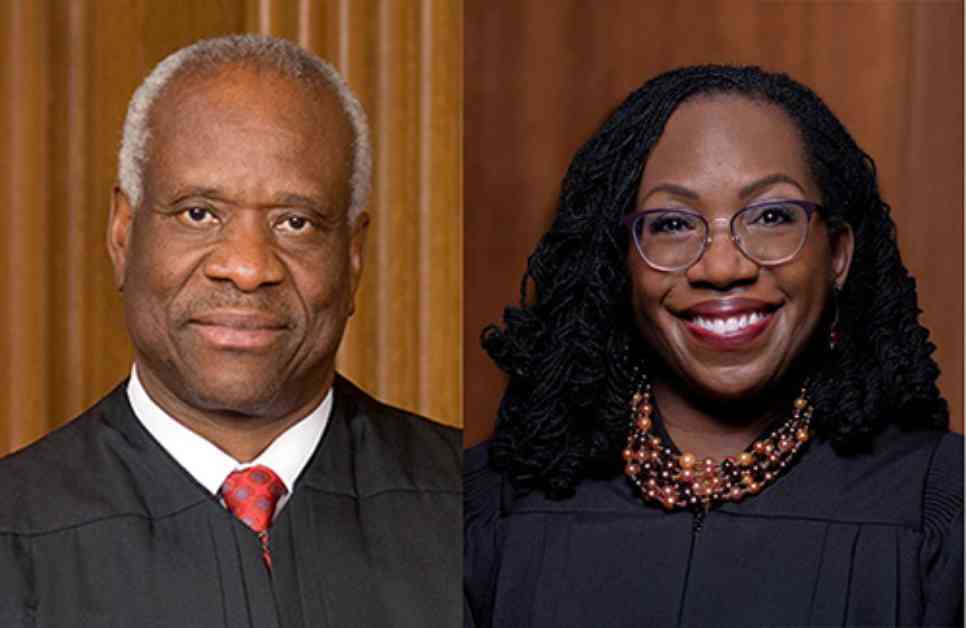U.S. JUDICIAL CONFERENCE DECIDES NOT TO REFER JUSTICES THOMAS AND JACKSON TO DOJ FOR INVESTIGATION
In a significant turn of events, the U.S. Judicial Conference has made a decision not to refer U.S. Supreme Court Justice Clarence Thomas and Justice Ketanji Brown Jackson to the Department of Justice for investigation. The conference’s ruling comes after concerns were raised about potential ethics violations regarding disclosure failures by the justices.
DETAILED EXPLANATION OF THE JUDICIAL CONFERENCE’S DECISION
The Judicial Conference revealed its stance in letters addressed to two Democratic lawmakers and a conservative think tank. U.S. Sen. Sheldon Whitehouse and U.S. Rep. Hank Johnson had urged investigations into Justice Thomas for alleged non-disclosure of various financial dealings, including property interests and gifts from a billionaire. On the other hand, the Center for Renewing America had requested a probe into Justice Jackson for potential omissions related to her husband’s income and contributions to an investiture celebration.
Senior U.S. District Judge Robert J. Conrad Jr., who serves as the secretary of the Judicial Conference, confirmed that both justices had since amended their disclosure statements to rectify the identified issues. Furthermore, the conference clarified that certain gifts of personal hospitality were exempt from disclosure requirements, though exceptions applied to specific scenarios involving transportation and business-related gifts.
CLARIFICATION ON RETROACTIVE GUIDANCE AND AUTHORITY
The Judicial Conference emphasized that new guidance on disclosure rules was not retroactively applied to past statements. Regarding the exemption for personal hospitality, the conference acknowledged confusion over the application of rules before 2022, leading to a different interpretation of the requirements.
In a notable statement, the conference expressed uncertainty about its authority to refer Supreme Court justices to the Department of Justice for further investigation, raising questions about the jurisdictional boundaries between the judicial and executive branches.
As this news unfolds, it underscores the complexities of maintaining ethical standards within the highest echelons of the judiciary. The decision not to pursue investigations against Justices Thomas and Jackson highlights the nuanced nature of legal and ethical considerations in the realm of judicial conduct. It prompts reflection on the balance between accountability and autonomy in upholding the integrity of the judiciary as a pillar of democracy.















